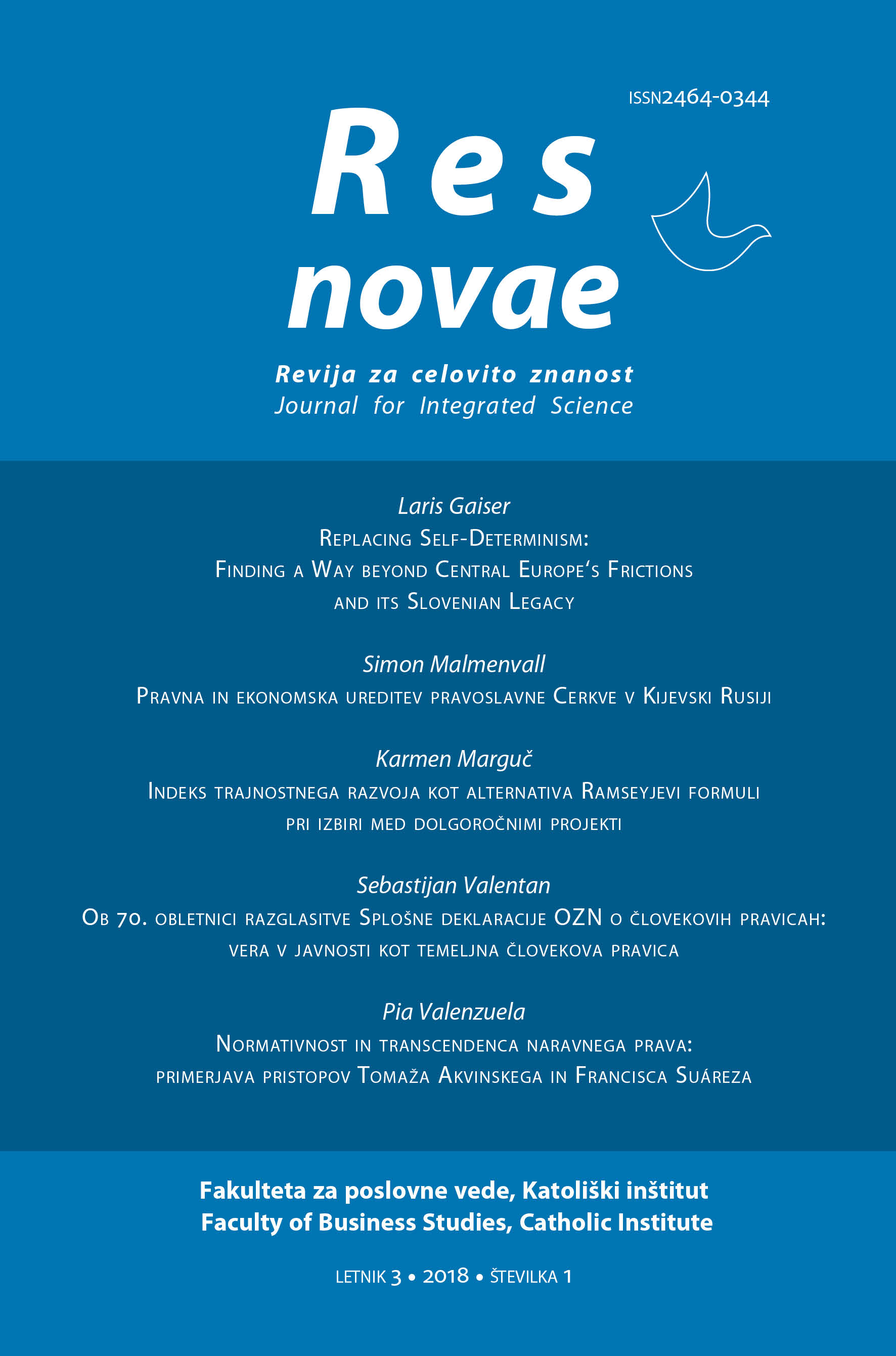Normativity and Transcendence of Natural Law: A Comparison of the Approaches of Thomas Aquinas and Francis Suárez
Pia Valenzuela
Normativity and Transcendence of Natural Law: A Comparison of the Approaches of Thomas Aquinas and Francis Suárez
DOI: https://doi.org/10.62983/rn2865.181.5
Key words: natural law, eternal law, civil law, natural inclinations, practical reason, will, rational ethics, Thomas Aquinas, Francis Suárez
Abstract:
The concept of something »just by nature« enjoys a long philosophical tradition, from Plato to Thomas Aquinas, but only in Aquinas do we find the notion of natural law as participation of the eternal law in the rational being. Based on this notion, we deal with the relationship between natural law and eternal law in Thomas Aquinas and Francisco Suárez. Particularly relevant is the issue of the basis of the natural law since it relates to the question of the foundation of moral law and, ultimately, of ethics. Precisely this reflection on the foundation is needed, because since the 1980s, natural law has been considered above all as a law of practical reason, focusing on a reflection on the connection between natural law and virtue, or between natural law and human law. However, the metaphysical dimension of natural law, and with it, the question of the ultimate basis of normativity has yet to be addressed satisfactorily. Suárez was the last great scholastic follower of Aquinas and, consequently, to some extent responsible for the modern reception of the natural law of Aquinas. Thus, the comparison with Suárez aims to find out differences for the subsequent knowledge of the classical concept of natural law.
PDF



